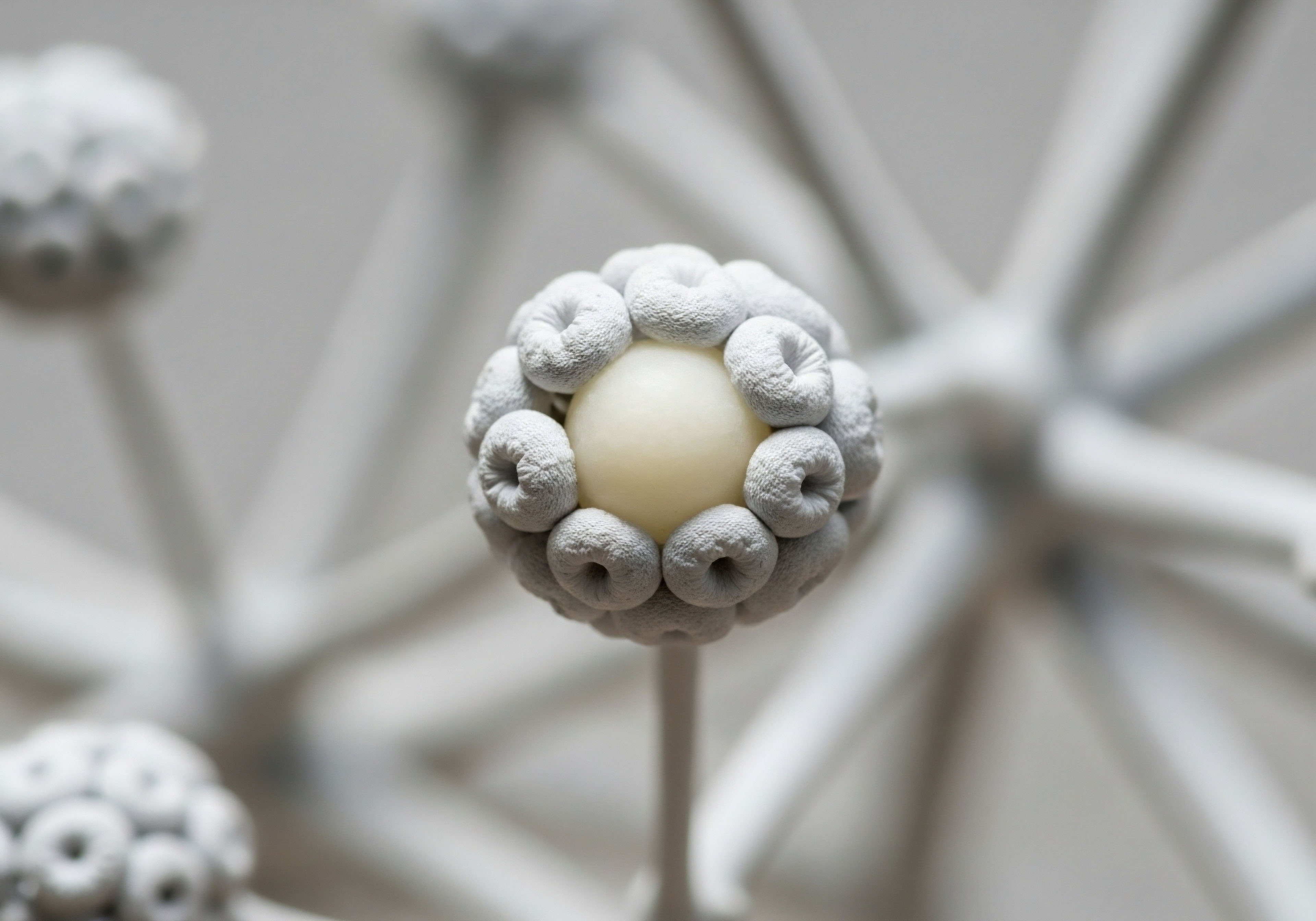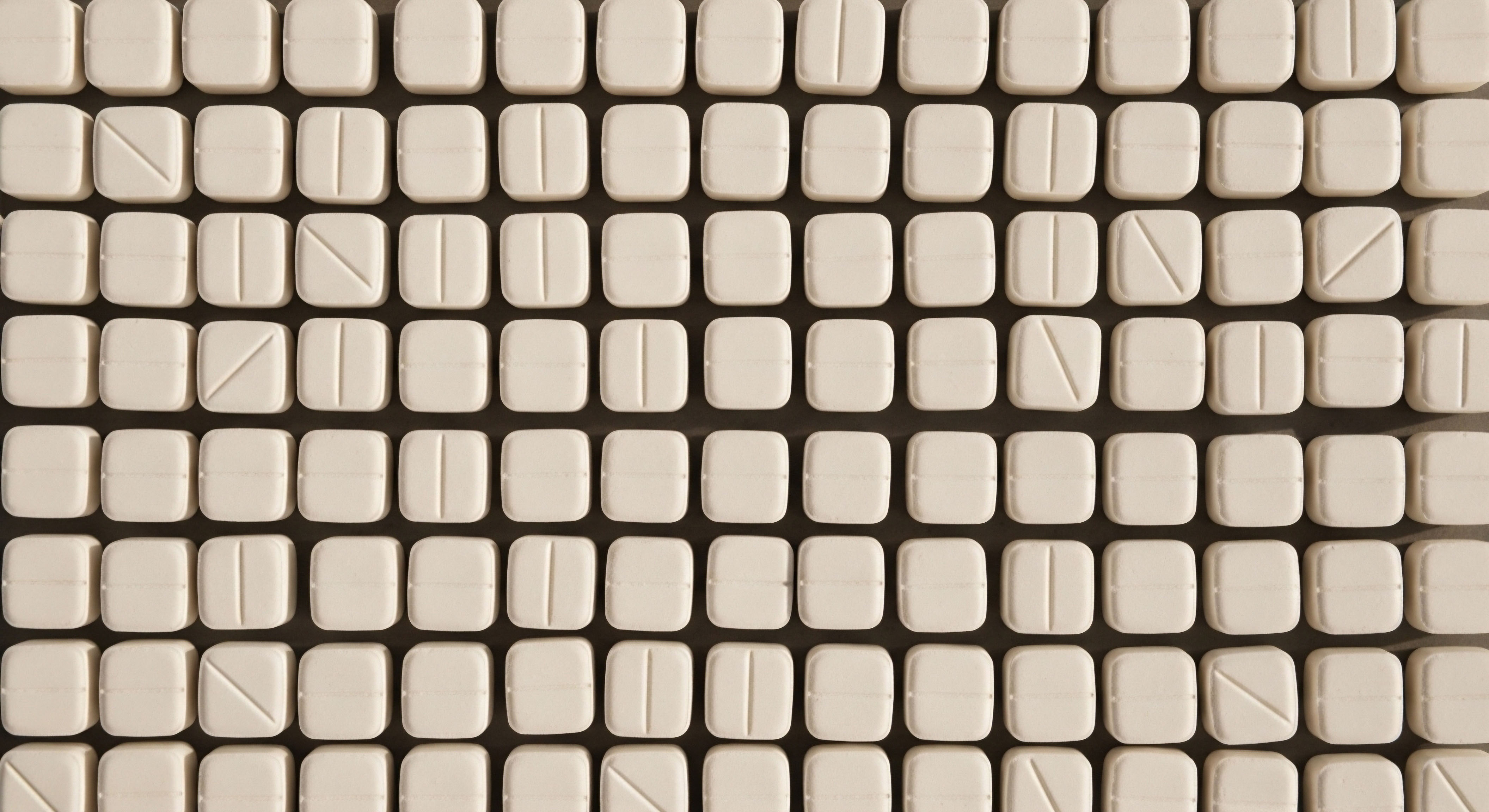

The Nocturnal Mandate for Human Performance
Sleep is an active, strategic investment in your biological capital. It is the period where the body’s most critical upgrades are installed, its software is debugged, and its hormonal currency is minted. Viewing sleep as mere downtime is a fundamental miscalculation.
It is a potent anabolic state, a nightly mandate from your endocrine and central nervous systems to rebuild the very foundations of your physique and mind. Every hour of deep, uninterrupted rest is a deposit into the accounts of muscular growth, cognitive acuity, and metabolic efficiency. This is the operating theater where the raw materials of your day ∞ nutrition, training, mental stimuli ∞ are forged into tangible results.

The Endocrine Recalibration
The dark hours trigger a profound hormonal shift, moving the body from the catabolic, energy-spending state of daytime to a powerful anabolic, rebuilding state at night. This process is governed by the master clock of your circadian rhythm. As cortisol, the stress hormone, reaches its nadir, the pituitary gland initiates the release of human growth hormone (GH).
This potent peptide is the primary signal for cellular repair and proliferation. Concurrently, the majority of testosterone production occurs during sleep. One week of sleep restriction can decrease testosterone levels by up to 15% in healthy young men, directly compromising muscle protein synthesis, libido, and drive. Sleep is the factory floor for the hormones that define your physical and mental power.
A single week of restricted sleep has been shown to decrease testosterone levels by 10-15%, an effect equivalent to aging by more than a decade.

The Neurological Software Update
While the body rebuilds, the brain undergoes its own critical maintenance cycle. During slow-wave sleep, the glymphatic system, the brain’s unique waste-clearance network, dramatically increases its activity. It flushes out metabolic byproducts accumulated during waking hours, including proteins linked to neurodegeneration. This is a detoxification process essential for maintaining long-term cognitive health.
Simultaneously, sleep is where memory consolidation occurs. The brain replays, sorts, and stores significant neural patterns from the day, strengthening useful connections and pruning weaker ones. This nightly optimization is what produces sharp recall, fluid problem-solving, and stable emotional regulation.

The Metabolic Reset
The relationship between sleep and metabolic health is absolute. Chronic sleep deprivation induces a state of insulin resistance, diminishing the body’s ability to effectively manage glucose. This disruption forces the pancreas to produce more insulin to achieve the same effect, a direct pathway to metabolic syndrome and type 2 diabetes.
The hormones that regulate appetite, leptin (satiety) and ghrelin (hunger), are also thrown into disarray by poor sleep. Leptin levels drop and ghrelin levels rise, creating a powerful physiological signal for overconsumption of energy-dense foods. Quality sleep is a primary tool for maintaining insulin sensitivity and a favorable body composition.


The Mechanics of Hormonal Resynchronization
The optimization of your biology during sleep is not a passive event; it is a precisely orchestrated sequence of physiological processes. Each stage of sleep unlocks a different set of restorative protocols, governed by specific neurological and endocrine signals. Understanding these mechanics allows you to appreciate sleep as a dynamic process of physical and cognitive reconstruction. The body follows a clear chain of command, initiated by changes in brainwave activity, that dictates which systems are repaired and which are upgraded.

Slow-Wave Sleep the Anabolic Trigger
The most physically restorative part of sleep is NREM Stage 3, also known as slow-wave sleep (SWS) or deep sleep. This stage is characterized by high-amplitude, low-frequency delta waves in the brain. It is during SWS that the pituitary gland releases its largest and most powerful pulse of growth hormone.
This surge of GH travels through the bloodstream, signaling cells in muscle, bone, and other tissues to initiate repair and growth. It stimulates protein synthesis, the fundamental process of building new muscle fibers, and promotes the utilization of fat for energy. The majority of this critical anabolic window occurs in the first third of the night. Missing these early hours of deep sleep directly blunts your physical recovery and adaptation from training.

REM Sleep the Cognitive Forge
Rapid Eye Movement (REM) sleep is the primary stage for mental restoration. While your body’s muscles are in a state of near-paralysis, your brain activity mirrors that of an awake, alert state. This is the workshop where procedural memories, such as a new motor skill or athletic movement, are consolidated.
Neural pathways are refined, and the brain’s emotional circuits are recalibrated. Insufficient REM sleep compromises learning, creativity, and emotional stability. It is the biological mechanism for integrating new knowledge and maintaining a resilient, adaptive mindset. This stage typically dominates the final third of the night, priming the mind for the challenges of the following day.
-

Glymphatic Clearance
The brain’s waste removal system is most active during deep sleep, clearing out neurotoxins.
-

Hormonal Secretion
Growth hormone and testosterone peak during specific sleep stages, driving physical repair.
-

Memory Consolidation
The brain solidifies new information and skills, transferring them to long-term storage.
-

Metabolic Regulation
Sleep helps maintain insulin sensitivity and balances appetite-controlling hormones.


The Chronobiology of Peak Expression
The effectiveness of sleep is determined not only by its duration but by its timing and consistency. Your body operates on an internal 24-hour clock, the circadian rhythm, which dictates the optimal timing for virtually every physiological process, including the sleep-wake cycle.
Aligning your sleep schedule with this internal clock is fundamental to maximizing the restorative benefits. This alignment, known as entrainment, ensures that the powerful hormonal signals for repair and growth are released at the precise moment they will have the greatest impact. Disregarding this rhythm is like trying to run a complex manufacturing process with the shifts out of sync; the output is inevitably compromised.

The First Four Hours the Physical Foundation
The most significant period for physical restoration occurs in the first half of the night, typically from 10 PM to 2 AM for an individual with a standard chronotype. This window is when you experience the longest and deepest bouts of slow-wave sleep. It is the non-negotiable period for maximizing growth hormone release and initiating muscle repair.
Athletes and individuals focused on physique development must prioritize this early sleep window. Delaying sleep onset past this point means you are sacrificing the most potent anabolic phase of the night, an opportunity for growth that cannot be fully reclaimed by sleeping in later.

The Pre-Dawn Hours the Mental Priming
The second half of the night, from roughly 2 AM to 6 AM, is characterized by longer and more frequent periods of REM sleep. This is when the brain performs its most intensive work on cognitive and emotional optimization. The mind is primed for the day, consolidating learning and balancing neurochemistry.
Waking up consistently before this phase is complete can lead to feelings of mental grogginess, emotional irritability, and a reduced capacity for complex thought, even if the total hours of sleep seem sufficient. This period is essential for cementing the mental edge required for high-performance endeavors.
Sleep deprivation has been found to reduce growth hormone secretion by nearly 30%, significantly impacting the body’s ability to repair tissues and maintain lean muscle mass.
-

Consistent Schedule
Maintain the same bedtime and wake time, even on weekends, to anchor your circadian rhythm.
-

Light Exposure
Seek bright, natural light exposure early in the morning. Avoid bright, blue-light-emitting screens in the hours before bed.
-

Cool Environment
A drop in core body temperature is a key signal for sleep onset. Keep your bedroom cool.
-

Nutrient Timing
Avoid large meals and excessive alcohol intake close to bedtime, as they can disrupt sleep architecture.

Sleep Is the Ultimate Performance Enhancer
The relentless pursuit of optimization through advanced nutrition, precise training protocols, and sophisticated supplementation is incomplete without the mastery of sleep. It is the silent, foundational element upon which all other efforts are built. Sleep is not a passive state of recovery; it is the most active and potent performance-enhancing protocol available.
It is the system’s daily reset, the period where the blueprint for a superior physique and a formidable mind is read and executed by your own biology. To neglect sleep is to willingly operate with a compromised hormonal profile, a dulled intellect, and a handicapped physiology. It is the deliberate choice to accept a lesser version of yourself. True optimization begins when the lights go out.



